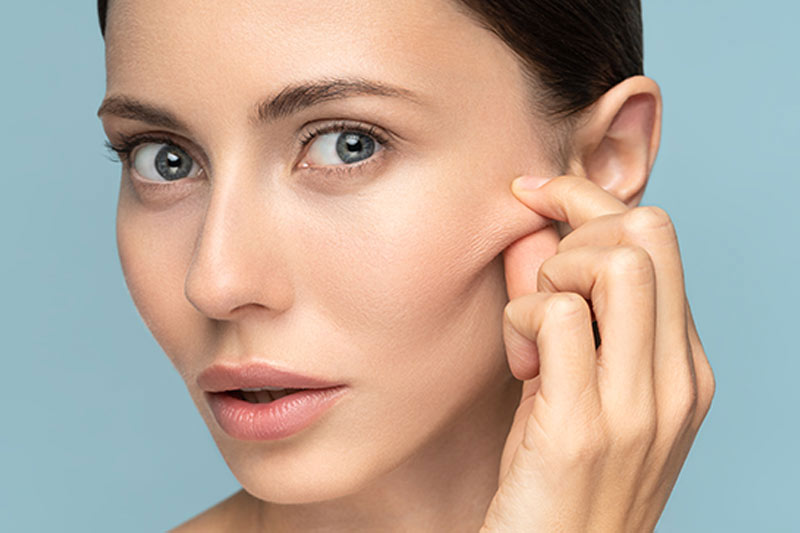Are You Aware That Inadequate Sleep Can Worsen Skin Elasticity?
Good skin isn’t just about what you apply externally; your internal health and lifestyle choices play a significant role. Among these choices, sleep quality and duration are critical factors that impact your skin’s health. One lesser-known consequence of insufficient sleep is its effect on skin elasticity, a key component of youthful and healthy skin.
In this article, we’ll delve into the connection between sleep and skin elasticity, explore the science behind it, and offer practical tips to ensure your skin remains resilient and radiant.
What Is Skin Elasticity, and Why Does It Matter?
Skin elasticity refers to your skin’s ability to stretch and bounce back to its original shape. It’s primarily determined by two proteins:
Collagen: Provides structure and strength to your skin.
Elastin: Allows the skin to return to its original form after stretching.
A loss of skin elasticity, often referred to as skin laxity, can result in sagging skin, fine lines, and wrinkles. While aging naturally reduces collagen and elastin production, lifestyle factors such as inadequate sleep can accelerate the process.
How Sleep Impacts Skin Health
Sleep is often referred to as "nature’s healer," and for good reason. During sleep, your body enters a state of repair and rejuvenation. Let’s look at how this affects your skin:
Increased Collagen Production: Deep sleep stimulates the release of growth hormones, which are vital for collagen synthesis. Collagen strengthens your skin and maintains its elasticity.
Reduction in Cortisol Levels: Sleep reduces the production of cortisol, a stress hormone that can break down collagen and elastin. Chronic sleep deprivation keeps cortisol levels high, leading to premature aging.
Improved Blood Flow: Adequate sleep enhances circulation, ensuring that your skin cells receive the nutrients and oxygen they need to repair damage and maintain elasticity.
Balanced Hydration: Sleep regulates your body’s hydration levels. Poor hydration can weaken your skin’s barrier function, leading to dullness and reduced elasticity.
The Science Behind Sleep Deprivation and Skin Elasticity
A growing body of research highlights the link between sleep deprivation and skin health. According to a study published by the National Center for Biotechnology Information (NCBI), individuals who slept poorly exhibited:
Increased transepidermal water loss (TEWL), which compromises skin hydration and elasticity.
Reduced skin barrier recovery, making the skin more prone to damage.
Accelerated signs of aging, including fine lines and sagging skin.
Another report by the Cleveland Clinic (source) emphasizes that lack of sleep disrupts your skin’s natural repair processes, leading to increased oxidative stress and reduced production of collagen and elastin.
Signs Your Skin Is Suffering From Poor Sleep
Not sure if your lack of sleep is affecting your skin? Look out for these telltale signs:
Sagging Skin: A noticeable loss of firmness and elasticity.
Dark Circles and Puffiness: Sleep deprivation dilates blood vessels under the eyes, causing dark shadows and swelling.
Fine Lines and Wrinkles: A lack of collagen production can lead to early signs of aging.
Dullness: Poor circulation from sleep deprivation makes your skin look lifeless.
How Much Sleep Do You Need for Healthy Skin?
Experts recommend 7-9 hours of quality sleep per night for optimal health, including skin health. During this time, your body cycles through different sleep stages, with deep sleep being the most restorative for your skin.
Practical Tips to Improve Sleep and Boost Skin Elasticity
Stick to a Sleep Schedule: Go to bed and wake up at the same time every day to regulate your internal clock.
Create a Sleep-Friendly Environment:
Keep your bedroom cool, dark, and quiet.
Invest in a comfortable mattress and pillows.
Avoid Screen Time Before Bed: Blue light from devices can suppress melatonin production, making it harder to fall asleep.
Adopt a Nighttime Skincare Routine: Cleanse your skin and apply a moisturizer rich in hyaluronic acid and antioxidants before bed. These products work synergistically with your skin’s repair processes.
Stay Hydrated: Drink plenty of water throughout the day to maintain your skin’s moisture levels.
Limit Caffeine and Alcohol: Both substances can disrupt your sleep cycle and dehydrate your skin.
How Pretty Skin Clinic Can Help
For those struggling with skin issues related to sleep deprivation, visiting a dermatologist can provide tailored solutions. Pretty Skin Clinic, led by the renowned Dr. Pretty Singla, offers advanced treatments to rejuvenate and restore your skin’s elasticity. From collagen-boosting therapies to personalized skincare regimens, Dr. Singla’s expertise can help you achieve radiant, youthful skin.
To learn more, visit https://prettyskin.in.
Key Takeaways
Sleep is crucial for maintaining skin elasticity and preventing premature aging.
Lack of sleep can accelerate collagen breakdown, leading to sagging skin and wrinkles.
Prioritize good sleep hygiene and consult a dermatologist for advanced solutions if needed.
Disclaimer
The information provided is for informational purposes only and does not constitute medical advice. Readers should consult with a qualified healthcare professional for diagnosis and treatment.

Comments
Post a Comment